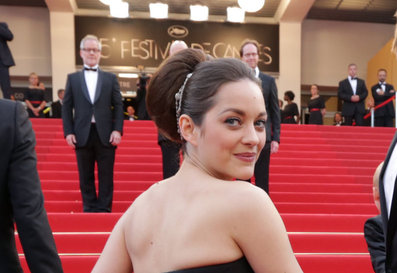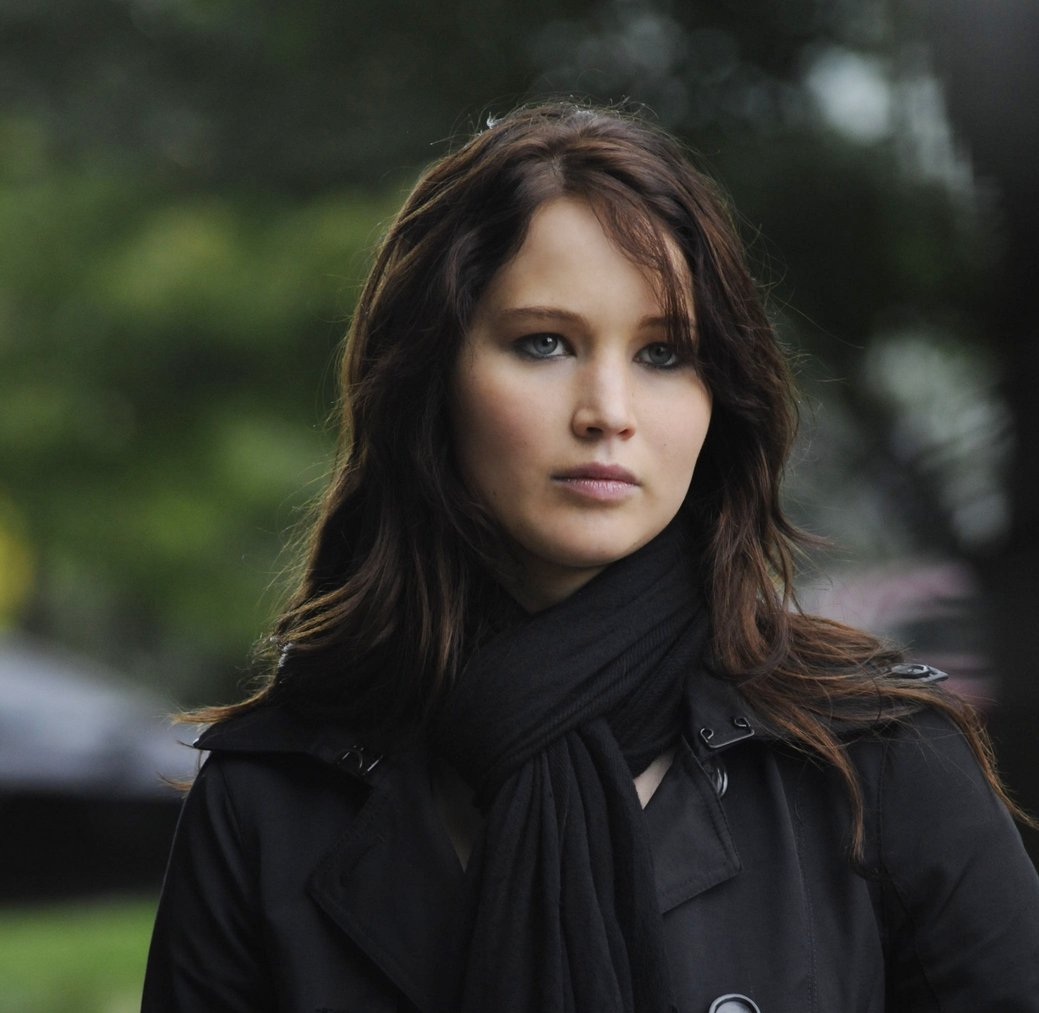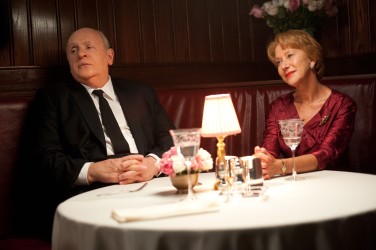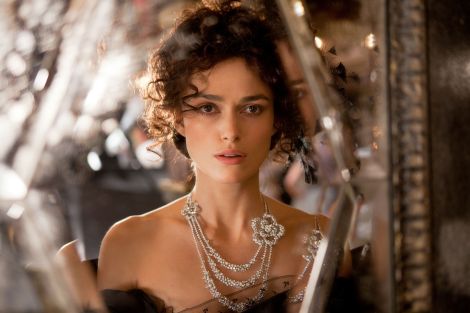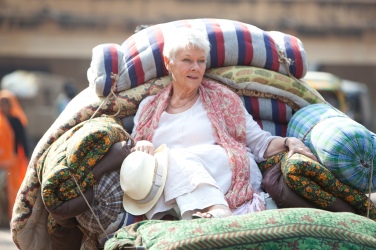David Mermelstein is an AwardsLine contributor. This story appeared in the Nov. 14 issue of AwardsLine.
Although Marion Cotillard is the perfect blend of European elegance and natural allure, she’s never been afraid to portray characters lacking those gifts. Her Oscar-winning role as chanteuse Edith Piaf in La Vie en Rose (2007) is a perfect example of that. But she’s also appeared in big-budget Hollywood films like Michael Mann’s Public Enemies (2009), Christopher Nolan’s Inception (2010), and, earlier this year, Nolan’s The Dark Knight Rises. Her latest role, as Stéphanie in Jacques Audiard’s French-language Rust and Bone, finds her playing an emotionally repressed whale trainer who loses her legs in an on-the-job accident and then must recalibrate her life.
AWARDSLINE: What attracted you to the role of Stéphanie in Rust and Bone?
MARION COTILLARD: First of all, I always wanted to work with Jacques Audiard, so I was thrilled when he asked to meet with me. I expected a very special story from him because all his movies are very special, but what I didn’t expect was a real love story. And I fell in love with the character—the evolution of her, the complexity. And how she goes from anger to power is something that really moved me.
AWARDSLINE: What was it like working with Jacques Audiard?
COTILLARD: It was one of the most interesting experiences I’ve had with a director. He doesn’t come on set with something very specific; it’s an exploration every day. He’s always seeking authenticity. We would try a scene many ways, but even when a take was totally different, the direction would always point the same way. And the take we finally chose was enriched by all the exploration around it.
AWARDSLINE: You were incredible—both emotionally and physically—in the scenes after Stéphanie lost her legs. How did you prepare for that?
COTILLARD: Physically, I started to watch videos of amputees. But very quickly I realized I didn’t need it. Because it just happened in her life, so I would live it with her. Emotionally, I saw it like someone who was struggling with life, like an empty shell, as someone who doesn’t know what to do with herself. And then there’s this dramatic accident. I saw it like a rebirth.
AWARDSLINE: And what about technically—what did you have to do?
COTILLARD: When I’m in the wheelchair, my legs were folded underneath me. For the scenes when I walk or am carried, I wore green socks and the rest was CGI. (Costar) Matthias Schoenaerts had to carry me in a very special way, because your center is different without legs. Also, I had to put my legs in certain positions so they could erase them easily, especially in the love scenes with Matthias and when he carries me to the sea. But that’s what we do: We try to make-believe things—first to ourselves and then to the audience. That’s acting.
AWARDSLINE: Did CGI make your job any easier?
COTILLARD: Jacques always says he wouldn’t have been able to do this movie even 10 or 15 years ago, because the evolution of the CGI was not where we are now. Those CGI guys were really amazing.
AWARDSLINE: Was it strange for you to watch the film?
COTILLARD: Yeah, it was. It’s always weird to talk about my impressions or feelings about a movie that I’m in. But I thought, This film looks amazing.
AWARDSLINE: What’s the primary difference between making French movies versus American movies?
COTILLARD: There’s a lot of technical differences. But the thing is, there’s as much difference between two French movies or two America movies—because every story is different, every director is different.
AWARDSLINE: You won the Oscar in 2008 for La Vie en Rose. How has that affected your career both internationally and in America?
COTILLARD: It opened the doors of American cinema to me. I had never dreamt of doing American movies, although I didn’t know whether it was impossible or possible. So that changed things. American projects came my way, and amazing directors wanted to work with me.
AWARDSLINE: Did you speak English before you started working in America?
COTILLARD: I did, but my English was very poor. My English really improved for Michael Mann’s Public Enemies, because I worked on it every day for six months.
AWARDSLINE: You’ve starred in some big Hollywood pictures. What’s their appeal for you?
COTILLARD: Sometimes when I meet the directors of very big blockbusters, I feel that for them making a movie is not a question of life and death—there’s not a deep need to be creative. Christopher Nolan is not part of that world. He is a real artist. So it’s a very big difference. And Michael Mann is a genius.
AWARDSLINE: Do you get different things as an actor from bigger versus smaller films, or do you find that acting is acting, regardless of budget?
COTILLARD: Oh, yeah, it’s exactly the same process. Each experience is unique. But my commitment to a project is t

